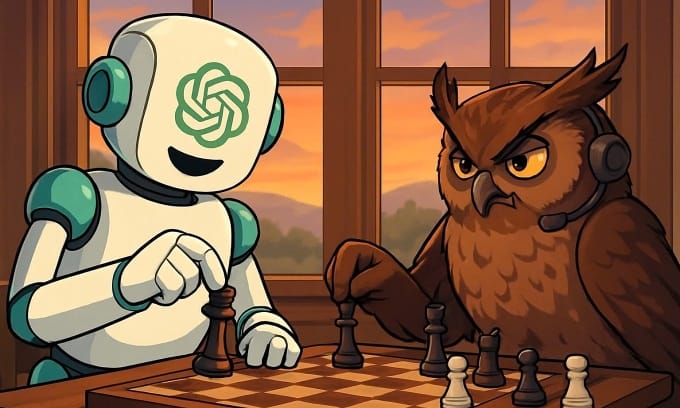Today’s top tech headline: OpenAI’s ChatGPT (o3) crushed Elon Musk’s Grok 4 in the grand finale of Google’s inaugural Kaggle Game Arena AI Chess Exhibition Tournament, sealing a 4–0 sweep. Google’s Gemini 2.5 Pro secured bronze after a lively win for third place, completing a dramatic first-of-its-kind chess championship among major AI systems.
Breaking Down the Tournament
The Kaggle Game Arena Chess Exhibition, held August 5–7, brought together eight large language models (LLMs)—from OpenAI, xAI, Google, Anthropic, DeepSeek, and Moonshot AI—in a three-day, single-elimination showdown designed to probe not just chess mastery but strategic reasoning and adaptability. Unlike traditional chess engines, these models weren’t built purely for chess, making the contest a deep dive into how modern AIs “think.”
Key Highlights: The Finals
The final featured OpenAI’s o3 (ChatGPT) versus xAI’s Grok 4, each emerging undefeated from tough semifinal matchups. Grok had impressed early, defeating Google’s Gemini in a tense tiebreaker. OpenAI’s o3 blew past o4-mini, its own lighter sibling.
In the championship match, o3 stormed Grok 4 with four consecutive victories. Each game exposed Grok’s struggles: dropping key pieces early, blundering its queen on two occasions, and failing in critical endgames that commentators described as “unrecognisable” compared to its earlier sharp performances.
o3’s play, while not at grandmaster level, averaged move accuracy above 91% across the tournament, decisively outpacing Grok 4’s 80.2%. Blitz and rapid chess players below the 2,000 rating mark would likely struggle against this AI’s tactical prowess, especially in fast play.
The most contested game was the fourth, when o3 briefly faltered with an early queen blunder but rallied with sharp tactics to retake control and finish the sweep.
Third Place: Gemini Steps Up
For bronze, Google’s Gemini 2.5 Pro dispatched OpenAI’s o4-mini, winning three games and drawing one. Experts noted Gemini’s games were “messy affairs,” but its overall performance earned Google podium pride and valuable insights for future LLM upgrades.
Gemini wasn’t quite as sharp as the leaders, yet its aggressive attacking style made for entertaining encounters—even if occasional draws reflected blunders on both sides.
Elon Musk Steps In—And Steps Back
Elon Musk quickly responded to Grok 4’s defeat, describing the chess results as a “side effect”—not the main aim of Grok’s development—while suggesting xAI spent “almost no effort on chess.” In his trademark style, Musk framed the loss as lack of prioritization rather than technical shortfall.
Magnus Carlsen, world chess number one, offered biting commentary: Musk “doesn’t have the greatest respect for chess players or the game,” emphasizing that while chess seems simple, its beauty lies in its depth and accessibility—even as computers master it rapidly.
Rivalries and Tech Implications
The Altman–Musk rivalry took center stage, their LLMs clashing amid recent OpenAI–xAI leadership battles and legal disputes. Both claim their current models are the world’s “most advanced,” yet the contest reaffirmed the rapid, ongoing evolution of general-purpose AI.
This event marks a milestone: Instead of specialist chess engines (like Stockfish or AlphaZero), the tournament tested general AIs—offering clues about future advances in logic, problem solving, and decision-making.
Final Results
Champion: OpenAI ChatGPT o3 (4–0 vs Grok 4)
Runner-up: xAI Grok 4
Third Place: Google Gemini 2.5 Pro (3.5–0.5 vs o4-mini)
Looking Forward
While chess “has been solved” for computers, the AI chess exhibition revealed much about the rapidly advancing capabilities of LLMs and their reasoning—whether for board games, conversation, or real-world problem solving. Organizers hope future tournaments will push AIs even closer to Artificial General Intelligence (AGI), as the pipeline of innovation and rivalry remains as fierce as ever.
Source: Chess.com exclusive tournament coverage, BBC News, VNExpress, MoneyControl, The Federal, Indian Express.

